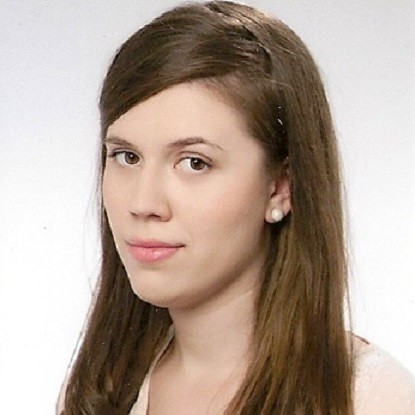Financial Planning & Analysis at Aon: career for life

Editor

related articles
Can you tell us briefly about your experience at Aon and what makes Aon a good place to work?
Charlie: I’ve been with Aon for seven years now. When I joined Aon I started off as a Finance Director for Europe, Middle East and Africa, in London. Since joining I’ve been lucky enough to get the opportunity to change my role every two or three years and the amount of opportunities for personal development is one of the things that has kept me at Aon and kept me excited. In my experience, Aon provides opportunities to people who want not only to develop themselves professionally but are prepared to take on new challenges.
In Kraków, 70 per cent of the managers we work with have joined us through internal promotions and I’m really proud of that. Externally, we are also trying to attract talent to develop and grow within Aon’s culture.
Looking at Aon globally, what makes the Polish Centre of Excellence special in comparison to all the other international entities?
Charlie: Poland in itself is special, that is why our major Centre of Excellence is here and this is where we shape the future of finance. Aon believes we have a perfect environment here in Kraków with a highly educated and motivated workforce that are capable of really taking on more and working in partnership with our onshore businesses. That onshore/offshore business model is very important to us and we find it a perfect fit with the highly skilled and motivated workforce available to us in Poland, specifically Kraków.
Do you offer any strategic processes in Kraków CoE?
Charlie: We started off the finance centre five years ago as we recently celebrated our fifth anniversary. In the beginning we focused on very transactional processes, such as PtP (Procure to Pay) or RtR (Record to Report), but after that we’ve gone very much up the value chain to more knowledge based activities, including things like FP&A (Financial Planning & Analysis), where we provide our business partners and sales leaders with timely and accurate financial information, as they require it. To achieve this, we need to be near shore business partners interacting on a daily basis with overseas teams, not only understanding the financials, but also the commercial drivers that underpin our business.
What is the job of an FP&A analyst like? How many people are there within FP&A in Kraków?
Charlie: Obviously, within an FP&A job there is a certain amount of reporting on what has happened in the previous months or a quarter, but there is also forecasting and strategic planning which are far more forward-looking activities. Outside from that, an FP&A job is really about helping the onshore finance teams and business leader perform better by making better, more informed decisions around their business. Where we are going as an FP&A team is trying to provide insightful timely information. Obviously there is a lot of interpreting data and trends, and what is exciting about FP&A, is that as your knowledge of the business grows, you really use financial techniques to influence and drive change. Whether it is about your relationship with the business leader and the business or your understanding of commercial elements of Aon’s operations.
As for the numbers, currently we have 49 people in FP&A, however in the coming months I see the team doubling as we move to support new geographies and processes.
Are there any specific challenges to this position?
Charlie: The main challenge is in building relationships with your overseas customers when you first join being based in Poland, with the teams we support based in countries around Europe or in the US, so there is an issue of building trust in this business relationship. To combat this, we tend to send our people to all those countries to spend time with those teams and get to know them and get embedded in the way they think. So that is one challenge, and another one is the fact that we are challenged by our own success. The firm has really started to rely on the teams in Kraków; more and more often when they do not understand something in the data, they turn to us. As for the biggest day-to-day challenge, it is managing the workflow to deliver effectively to our customers. As we have been so successful in adding value, the entire firm wants to come to Kraków, whether it is sending new jobs or getting access to our reporting capabilities, all the roads within Aon point to Kraków at the moment.
In relation to global cooperation, can your team in Kraków be described as international?
Charlie: Out of 200 people in our finance centre we have twelve from Poland who are overseas at the moment on international assignments, in geographies ranging from Chicago to Singapore, London and other European capitals. These are local Polish finance employees that have seized the opportunities to develop their skill sets and grow career within the Aon family overseas.
In terms of teams in Krakow, in FP&A team we have two individuals, one from the US and myself, who are from overseas. In our controllership teams we have a real mix of nationalities generally speaking, about three to five per cent of our team in Kraków are actually non-Polish. However, for the most part I am committed to developing talents from the local market into future technical expert & leadership roles. For me, the next generation of leaders in Kraków should actually be elected by tapping into local human resources.
When you look at FP&A and other areas such as controlling or accounting – what makes them similar or different?
Charlie: Controlling generally is reporting on what has happened and has a focus on improving controls as well as mitigating risk, with FP&A the focus is reporting on what is happening and what is going to happen. It gives insight and is forward-looking, so personally I find FP&A to be more and more exciting place to work, because you’re solving real-time problems of business leaders and helping them decide where to invest, why to divest and how to set strategic targets. Controlling is a very important part of our business, but there you are generally working in balance sheets, reporting on what has happened in the previous quarter, or year comparing with accounting. FP&A is more about what’s happening in the profit & loss statement, what is going to happen if you take certain actions or how to avoid certain things from happening.
Having said that, do you think it’s easier for a person with a background in controlling to move to FP&A or do you prefer to hire fresh graduates whom you can shape specifically into the roles typical for FP&A?
Charlie: I am a huge proponent of giving people internal opportunities. I would much rather grow people’s careers internally, rather than looking outside for the talent. Obviously with the growth we are looking towards at the moment it’s natural we will have to bring new people into our firm and culture, but to my mind we should keep a balance. With Aon’s training and development programs there is nothing stopping somebody working in controlling today moving across to FP&A and vice versa. Our internal last year accounted for 47 per cent of open roles and I am very proud of that figure as we really try to advocate internal moves and opportunities.
Regarding your new employees, who are you looking for? What’s the profile of a person who will feel good at FP&A?
Charlie: People who perform well in FP&A have a numerical brain, they are mathematically inclined, are very good at dealing with large sets of data and boiling that data down to very simple directional advice. You look at huge amounts of data and ask: what is the right target for this business? What is our margin target? What should we be doing to drive the right results to the firm? It’s all about using the data and your commercial knowledge with very simple outcomes, and doing it very quickly. So, we are particularly interested in people with an MBA, those with an economics degree or people who are studying ACCA or CIMA, however we are interested in all relevant finance experience and a willingness to develop and grow.
What do you use to deal with these big amounts of data? Have you developed any specific tools or programmes to help you out with that?
Charlie: Yes, we have. We have a number of different tools, depending on which team or where you work and what the problem is that you are trying to solve. We use QlikView and Tableau to deal with large sets of data as well as TM1, which is a reporting tool. We are also in the process of rolling out a new Business Intelligence tool and we are doing some testing at the moment. And last but not least, the good old Excel.
What about the future of FP&A? How do you see your department, as well as and the whole business in a few years?
Charlie: I think that with all the new technologies coming in, FP&A is going to become a much more exciting and relevant place to work. Technologies such as RPA (Robotic Process Automation) will eliminate the need of heavy lifting and allow our analysts to focus on what I call the ‘foresight’. So, in FP&A the biggest growth area is represented by forward-looking analytics. With the basic reporting and close activities involved with FP&A being automated through the use of new technologies. We will take that resource and deploy it on foresight-based analytics, which is really a value added to the business, allowing them to make better and more informed business decisions, and drive better results to the firm. FP&A is at a cross roads where we are going to automate a lot of standard reporting that we have now and spend much more time on looking ahead and on our relationship with and understanding of the business.
Would you say that you perceive RPA as an opportunity, not a threat to your business?
Charlie: Yes, absolutely. I see it as an enabler to providing much better service to the businesses which we support, allowing us to and grow what we are able to provide to the business. Actually, thanks to that, FP&A will provide greater influence across the firm.
We already have some robots that are in sandbox environments and are currently being tested. I hope that by the turn of the year we will have them live and delivering value to us.
Can you give some final advice for the people who may want to join FP&A in the future?
Charlie: FP&A is an incredibly exciting and varied career. If you are looking not only for a challenge professionally, but also something that is going to develop and grow with you, FP&A is a perfect space to consider entering at this time. It really does provide a career for life as it will grow and develop as your knowledge grows and develops.
Our expert:
 Charlie Love
Charlie Love
Charlie Love is an accomplished finance leader with more than a decade of experience gained in UK and EMEA insurance, reinsurance and broking roles. Joined Aon in early 2011 as the finance director for Europe Middle East and Africa. He brought with him a blend of Group Financial Planning and Analysis, and Regional leadership roles as a commercial partner and control function leader. Since February 2016 he has been leading Aon’s centre of Excellence in Kraków.












